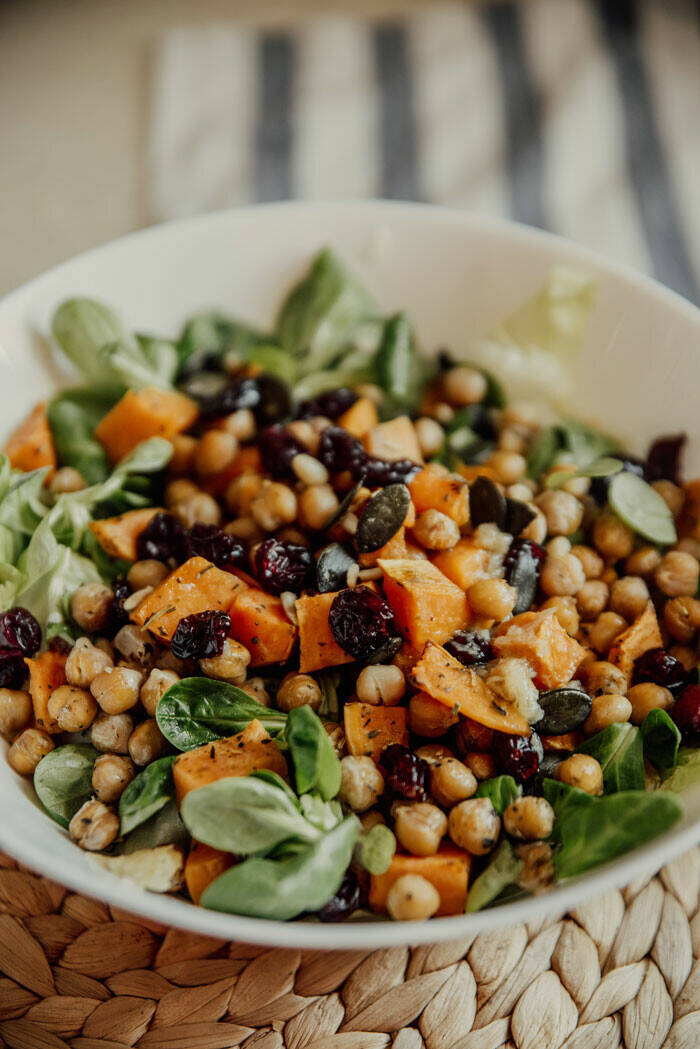Herbs and vitamins
Several laboratory studies, including a couple from Harvard, show that vitamin D can reduce the growth of cancer cells, help control infections and reduce inflammation. Most vitamin D is found in fatty fish, to a lesser extent it is also found in egg yolks and cheese.
Echinacea is a herb also known as the red sunflower. Cell studies have shown that echinacea can destroy influenza viruses. Echinacea use has not been shown to shorten the duration of a cold, but it offers a chance to protect against it.
The active ingredient in garlic is thought to have antiviral and antimicrobial effects on colds, but high-quality clinical trials comparing garlic supplements to placebo are unfortunately still lacking.
Cell studies have shown that certain antioxidants (catechins) found in green tea may prevent flu and some cold viruses from multiplying and increase immune activity. However, human trials are still limited.
Prebiotic foods:
garlic
onions
leeks
asparagus
Jerusalem artichoke
bananas
seaweed
Probiotic foods:
kefir
yogurt (with live active cultures)
fermented vegetables
sauerkraut
tempeh
kombucha tea
kimchi
miso
Pre- and probiotic
The gut is incredibly important to the immune system, especially what types of microbes live in our gut. Our diet plays a big role in this. A high-fiber, plant-based diet high in fruits, vegetables, whole grains and legumes seems to support the growth and maintenance of beneficial microbes. In fact, certain beneficial microbes break down fiber into short-chain fatty acids, which have been shown to stimulate the activity of immune cells. These fibers are also called prebiotics because they feed microbes. Therefore, a diet of probiotic and prebiotic foods can be beneficial.

Vegan lifestyle
Several studies show that a plant-based diet (compared to a diet high in meat and animal products) significantly reduces the risk of, for example, heart disease and type 2 diabetes. Vegetables are full of vitamins, minerals and fiber and often also contain certain antioxidants that have an anti-inflammatory effect. It is important to pay extra attention to the intake of sufficient protein, iron, vitamin B1, vitamin B2, vitamin B12 and calcium in a plant-based diet. Especially for sufficient vitamin B12, vegans are often advised to take a supplement, because it is difficult to obtain from plant-based food.
Diet for the best immune system
Examples of nutrients that have been found to be essential for the growth and function of immune cells include vitamin C, vitamin D, zinc, selenium and iron. These nutrients help the immune system in several ways: they act as antioxidants to protect healthy cells, support the growth and activity of immune cells, and produce antibodies. Deficiency of individual nutrients can alter the body's immune response.
It is believed that a Western diet high in refined sugar and red meat, and often lacking in fruits and vegetables, can cause disturbances in healthy gut microorganisms. The result can be (chronic) inflammation of the gut, which is detrimental to immunity.
Our immune system protects us from harmful microbes and certain diseases. It recognizes invaders such as bacteria, viruses and parasites and takes immediate action. We have two types of immunity: innate and adaptive. Adaptive or acquired immunity is a system that learns to recognize a pathogen. Our immune system then adapts by remembering the foreign substance in order to destroy it even more efficiently and quickly the next time. What factors can suppress our immune system?
Age. As we become older, our internal organs (which produce immune cells, for example) may become less efficient.
Environmental toxins, such as smoke and other particles that contribute to air pollution and excessive alcohol consumption.
Obesity. Fatty tissues produce adipokines (proteins) that can contribute inflammatory processes.
Poor diet. Malnutrition or a diet without one or more nutrients can impair the production and activity of immune cells.
Chronic diseases, such as autoimmune diseases.
Chronic stress. Stress releases hormones such as cortisol that suppress inflammation.
Lack of sleep and rest. Sleep is a time of recovery for the body and the time to fight infections.









Food as medicine
How do you know what food really contributes to your health? Does an apple a day really keep the doctor away? And can you knock out a cold with a good shot of vitamin C? In short: to what extent can certain products and dishes contribute to health? A number of studies provide answers.
Annemarie van Ulden Xiao Er Kong
expert opinion
4 min




Prebiotic foods:
garlic
onions
leeks
asparagus
Jerusalem artichoke
bananas
seaweed
Probiotic foods:
kefir
yogurt (with live active cultures)
fermented vegetables
sauerkraut
tempeh
kombucha tea
kimchi
miso
Pre- and probiotic
The gut is incredibly important to the immune system, especially what types of microbes live in our gut. Our diet plays a big role in this. A high-fiber, plant-based diet high in fruits, vegetables, whole grains and legumes seems to support the growth and maintenance of beneficial microbes. In fact, certain beneficial microbes break down fiber into short-chain fatty acids, which have been shown to stimulate the activity of immune cells. These fibers are also called prebiotics because they feed microbes. Therefore, a diet of probiotic and prebiotic foods can be beneficial.
Our immune system protects us from harmful microbes and certain diseases. It recognizes invaders such as bacteria, viruses and parasites and takes immediate action. We have two types of immunity: innate and adaptive. Adaptive or acquired immunity is a system that learns to recognize a pathogen. Our immune system then adapts by remembering the foreign substance in order to destroy it even more efficiently and quickly the next time. What factors can suppress our immune system?
Age. As we become older, our internal organs (which produce immune cells, for example) may become less efficient.
Environmental toxins, such as smoke and other particles that contribute to air pollution and excessive alcohol consumption.
Obesity. Fatty tissues produce adipokines (proteins) that can contribute inflammatory processes.
Poor diet. Malnutrition or a diet without one or more nutrients can impair the production and activity of immune cells.
Chronic diseases, such as autoimmune diseases.
Chronic stress. Stress releases hormones such as cortisol that suppress inflammation.
Lack of sleep and rest. Sleep is a time of recovery for the body and the time to fight infections.

Food as medicine


Herbs and vitamins
Several laboratory studies, including a couple from Harvard, show that vitamin D can reduce the growth of cancer cells, help control infections and reduce inflammation. Most vitamin D is found in fatty fish, to a lesser extent it is also found in egg yolks and cheese.
Echinacea is a herb also known as the red sunflower. Cell studies have shown that echinacea can destroy influenza viruses. Echinacea use has not been shown to shorten the duration of a cold, but it offers a chance to protect against it.
The active ingredient in garlic is thought to have antiviral and antimicrobial effects on colds, but high-quality clinical trials comparing garlic supplements to placebo are unfortunately still lacking.
Cell studies have shown that certain antioxidants (catechins) found in green tea may prevent flu and some cold viruses from multiplying and increase immune activity. However, human trials are still limited.




Vegan lifestyle
Several studies show that a plant-based diet (compared to a diet high in meat and animal products) significantly reduces the risk of, for example, heart disease and type 2 diabetes. Vegetables are full of vitamins, minerals and fiber and often also contain certain antioxidants that have an anti-inflammatory effect. It is important to pay extra attention to the intake of sufficient protein, iron, vitamin B1, vitamin B2, vitamin B12 and calcium in a plant-based diet. Especially for sufficient vitamin B12, vegans are often advised to take a supplement, because it is difficult to obtain from plant-based food.
Diet for the best immune system
Examples of nutrients that have been found to be essential for the growth and function of immune cells include vitamin C, vitamin D, zinc, selenium and iron. These nutrients help the immune system in several ways: they act as antioxidants to protect healthy cells, support the growth and activity of immune cells, and produce antibodies. Deficiency of individual nutrients can alter the body's immune response.
It is believed that a Western diet high in refined sugar and red meat, and often lacking in fruits and vegetables, can cause disturbances in healthy gut microorganisms. The result can be (chronic) inflammation of the gut, which is detrimental to immunity.


How do you know what food really contributes to your health? Does an apple a day really keep the doctor away? And can you knock out a cold with a good shot of vitamin C? In short: to what extent can certain products and dishes contribute to health? A number of studies provide answers.
Annemarie van Ulden Xiao Er Kong
4 min











